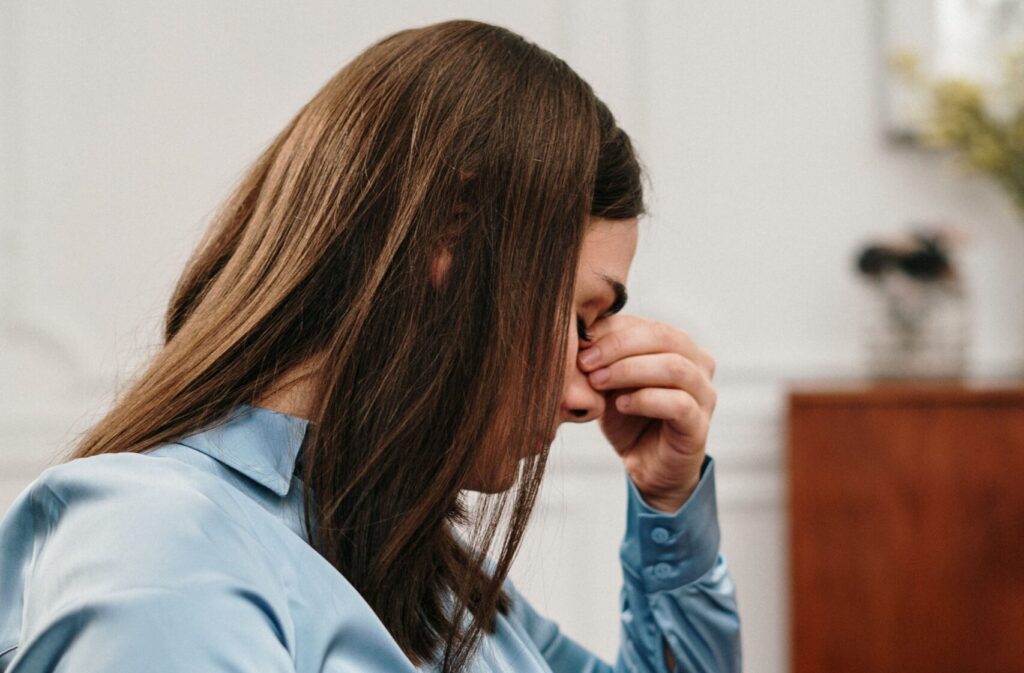Autism is a complex and poorly understood condition that affects millions of people around the world. While many people with autism can lead successful and fulfilling lives, others struggle with a wide range of challenges that can make daily life difficult. One of the most common and impactful symptoms of autism is sleep disturbances, which can have a significant impact on the quality of life.
Sleep is crucial for our overall health and well-being, and this is no different for individuals with autism. According to a study, it is estimated that as many as 80% of individuals with autism struggle with sleep, making it an important topic to address. In this article, we will explore the relationship between autism and sleep, and provide practical tips and strategies to help improve sleep for individuals with autism.
WHAT IS AUTISM SPECTRUM DISORDER (ASD)?
Autism is a neurodevelopment disorder that affects communication, behavior, and social interaction. It is a spectrum disorder, meaning that it affects individuals differently and to varying degrees. Symptoms of autism may include difficulty with social interaction, repetitive behaviors, and a restricted range of interests.
THE IMPORTANCE OF SLEEP FOR INDIVIDUALS WITH AUTISM
Sleep is essential for physical and mental health, and individuals with autism are no exception. Getting enough sleep can help individuals with autism to feel more alert and focused during the day, and can also improve their ability to regulate their emotions and behavior. Additionally, adequate sleep can help individuals with autism to perform better in school and social situations.
UNDERSTANDING THE CONNECTION BETWEEN AUTISM AND SLEEP
Several factors contribute to sleep difficulties in individuals with autism. Some common challenges include:
Sensory sensitivities: Many individuals with autism have sensitivities to light, sound, and temperature, which can make it difficult for them to fall asleep and stay asleep.
Difficulty with the routine: A consistent sleep routine can be challenging for individuals with autism, who may struggle with changes to their normal routine.

Hyperactivity: Some individuals with autism have high levels of energy and difficulty calming down, which can make it difficult for them to fall asleep.
Stress and anxiety: Individuals with autism may experience high levels of stress and anxiety, which can make it difficult for them to relax and fall asleep.
STRATEGIES TO IMPROVE SLEEP FOR INDIVIDUALS WITH AUTISM
Several strategies can be helpful in improving sleep for individuals with autism. Some of these include:
Develop a consistent sleep routine: Establishing a consistent sleep routine, including a set bedtime and wake-up time, can help individuals with autism fall asleep more easily and stay asleep.
Reduce sensory sensitivities: Reducing sensory sensitivities, such as by using a sound machine or black-out curtains, can help individuals with autism feel more relaxed and fall asleep more easily.
Engage in calming activities: Engaging in calming activities, such as reading a book or taking a bath can help individuals with autism relax and prepare for sleep.
Address stress and anxiety: Addressing stress and anxiety through therapy, medication, or other interventions can help individuals with autism relax and fall asleep more easily.
HOW SLEEP PROBLEMS CAN EXACERBATE AUTISM SYMPTOMS?
Sleep problems can worsen autism symptoms in several ways:
Disrupting routine: Changes in sleep patterns can disrupt the routine and structure that individuals with autism often rely on.
Increasing anxiety: Lack of sleep can increase anxiety levels, which can further exacerbate autistic symptoms.
Decreasing focus and attention: Sleep deprivation can lead to decreased focus and attention, making it harder for individuals with autism to process and respond to stimuli.
Aggravating sensory sensitivities: Sleep issues can also worsen sensory sensitivities, making it harder for individuals with autism to tolerate stimuli in their environment.
HOW AUTISM SYMPTOMS CAN CONTRIBUTE TO SLEEP PROBLEMS?
Autism symptoms can contribute to sleep problems in several ways:
Difficulty with transitions: Individuals with autism may have difficulty with transitions, including the transition from wakefulness to sleep.
Sensory sensitivities: Sensory sensitivities can make it difficult for individuals with autism to fall and stay asleep, especially if their sleeping environment is not conducive to their needs.
Restricted interests: Restricted interests and repetitive behaviors can interfere with sleep, especially if they involve activities that are stimulating or keep the individual awake.
Anxiety and stress: Individuals with autism may experience anxiety and stress, which can interfere with the ability to fall and stay asleep.
Repetitive thoughts: Repetitive thoughts and difficulties with executive function can lead to rumination and difficulty falling asleep.
THE ROLE OF SENSORY PROCESSING IN SLEEP DIFFICULTIES FOR INDIVIDUALS WITH AUTISM
Sensory processing plays a significant role in sleep difficulties for individuals with autism in several ways:
Sensory sensitivities: Individuals with autism may have sensory sensitivities that make it difficult to fall and stay asleep, such as sensitivity to light, sound, or touch.
Overstimulation: Overstimulation from the environment can interfere with sleep, especially for individuals with autism who are highly sensitive to stimuli.
Arousal levels: Sensory processing can affect arousal levels, making it difficult for individuals with autism to regulate their sleep-wake cycle.
Repetitive behaviors: Repetitive behaviors, such as rocking or spinning, can stimulate the nervous system and interfere with sleep.
Difficulty with transitions: Individuals with autism may have difficulty with transitions, including the transition from wakefulness to sleep, due to sensory processing difficulties.
https://www.autism.org.uk/advice-and-guidance/topics/physical-health/sleep


